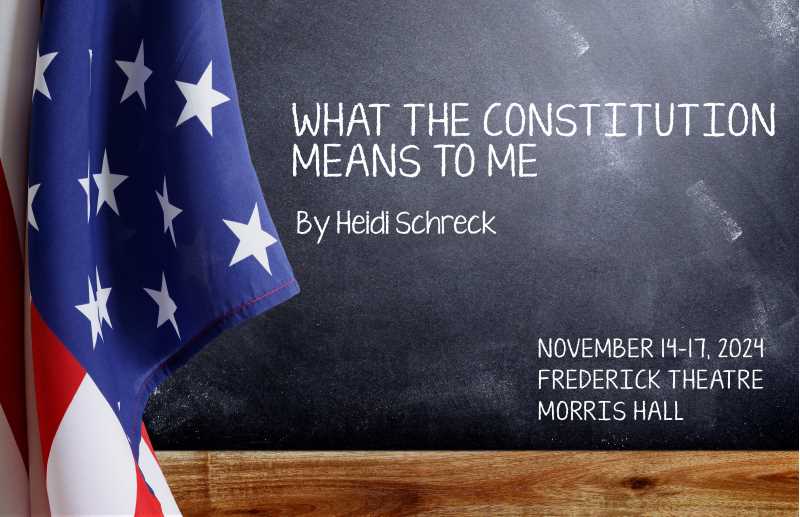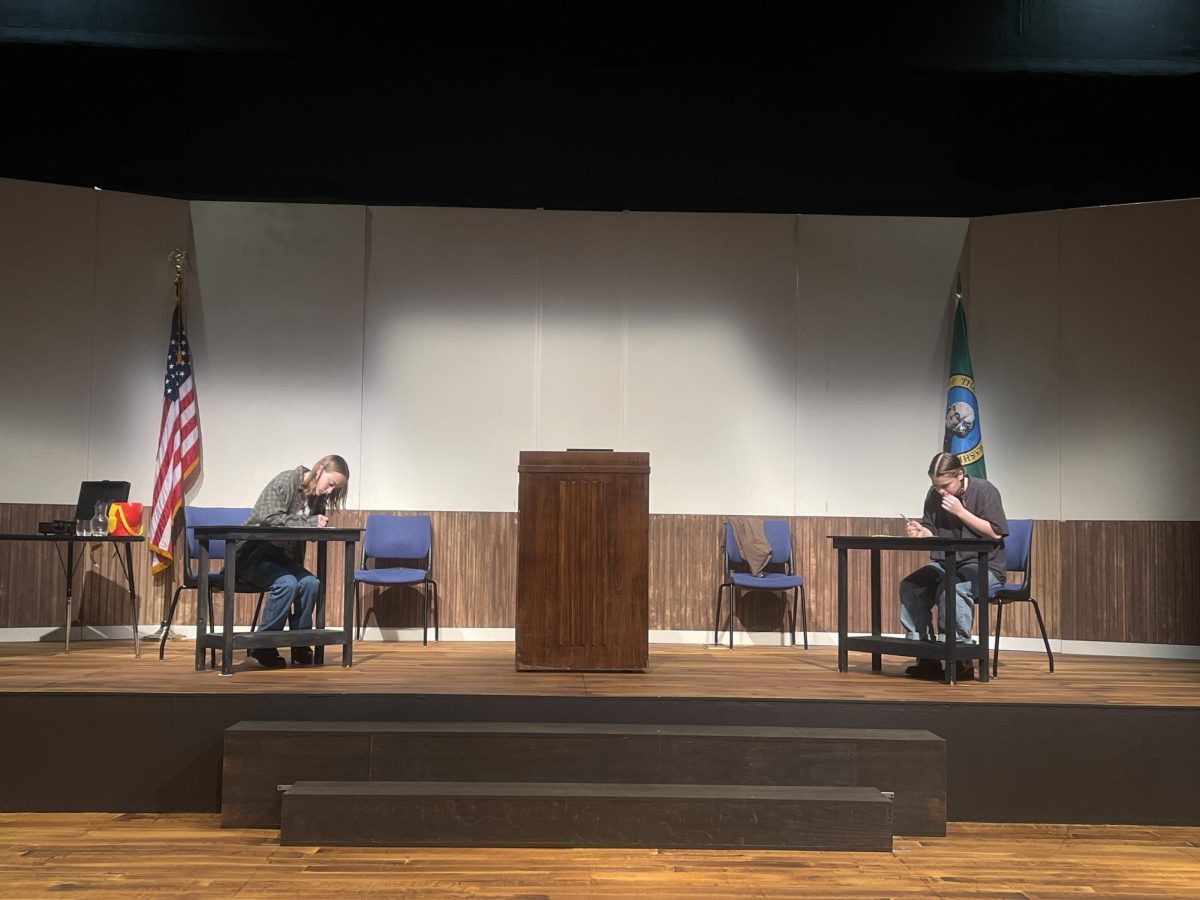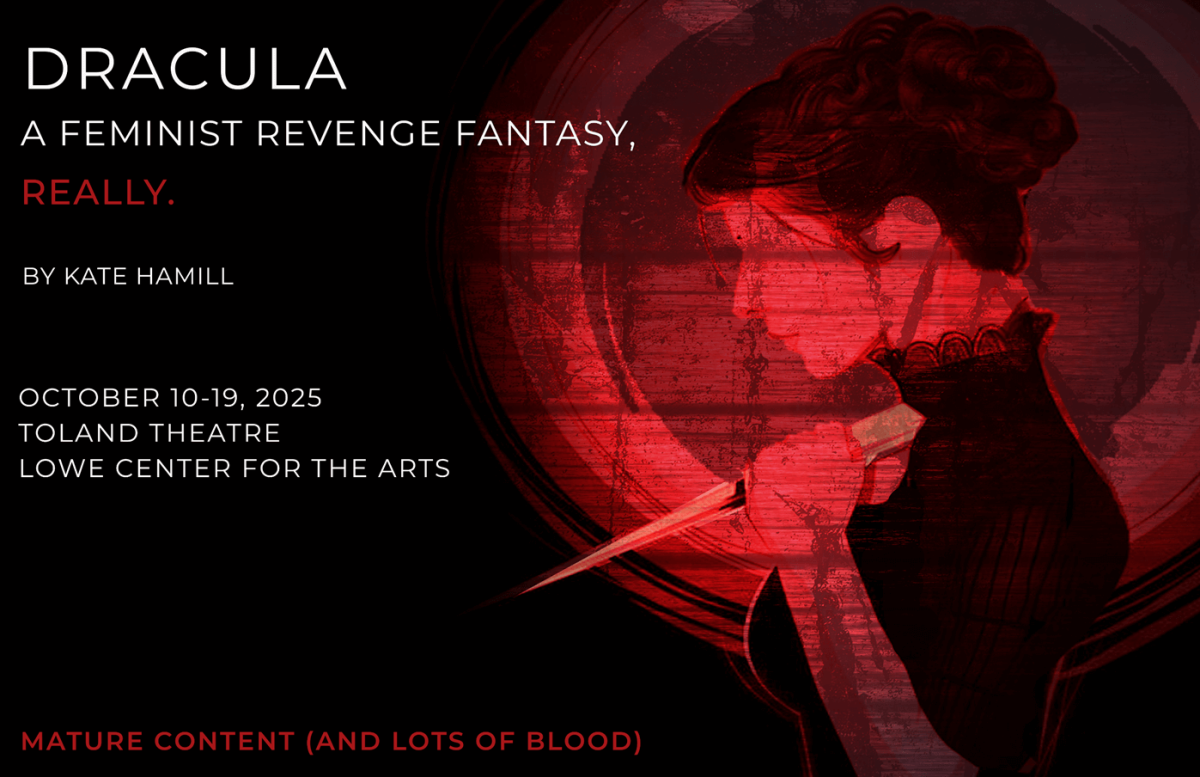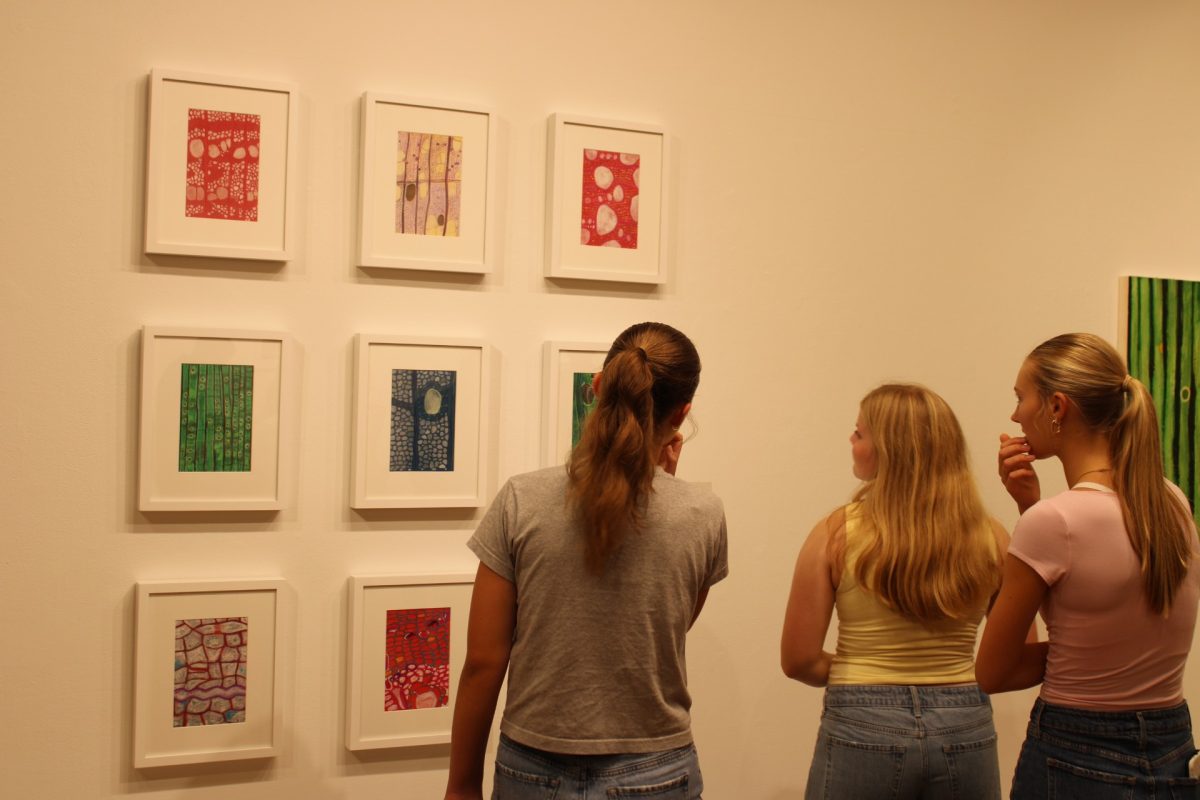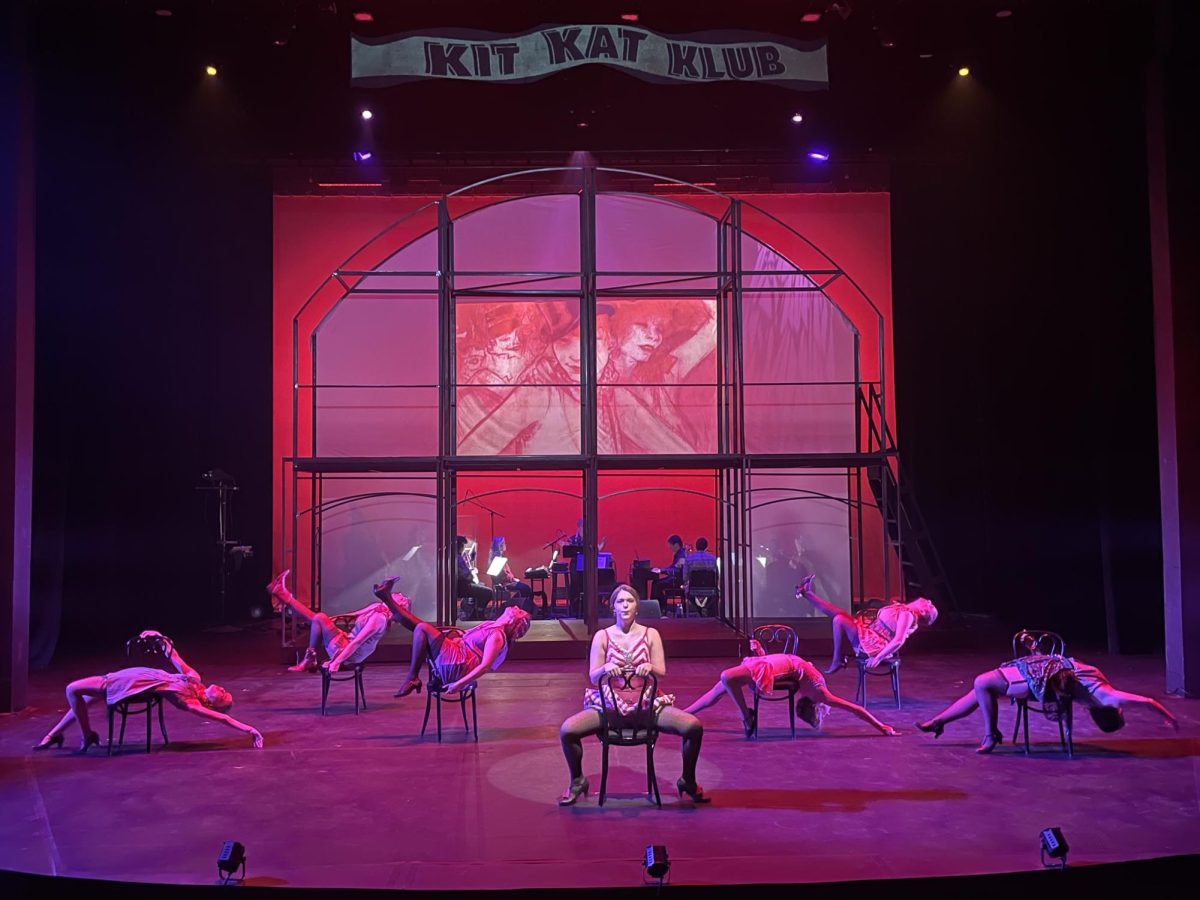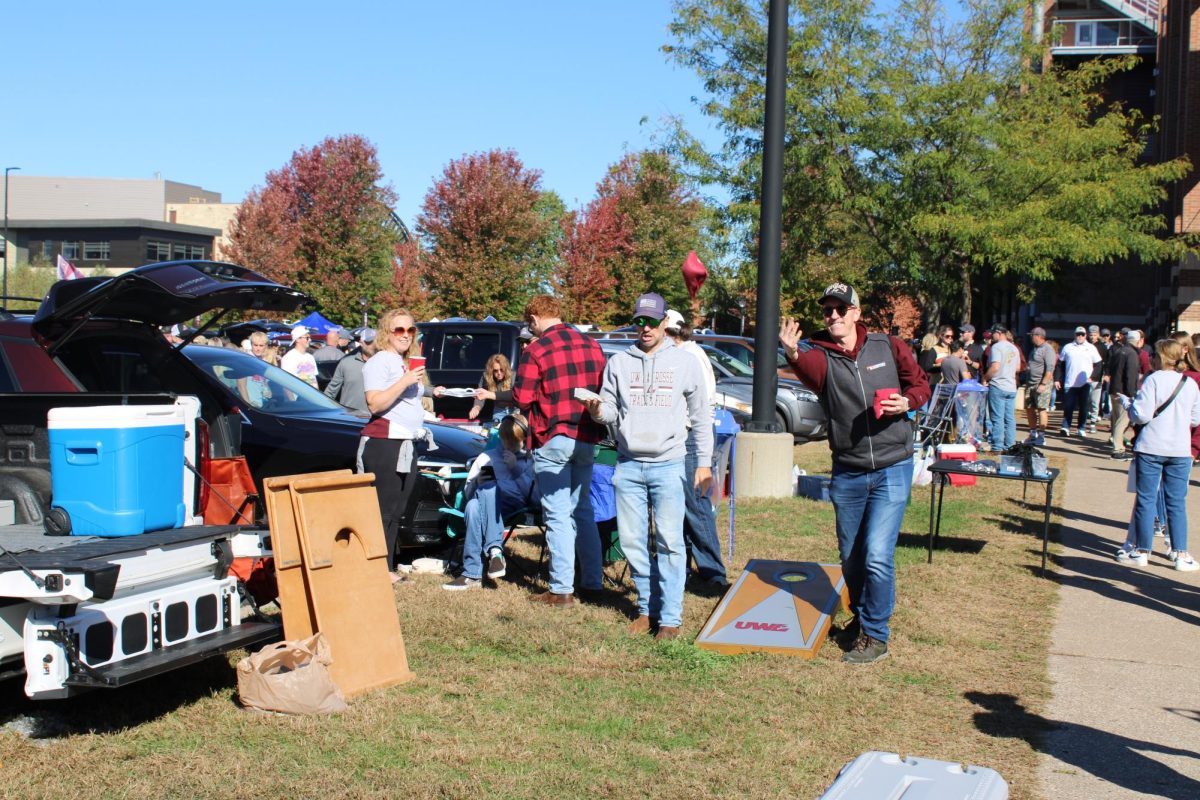The University of Wisconsin-La Crosse Department of Theatre and Dance presented their first two performances of “What the Constitution Means to Me” on Nov. 14 and Nov. 15. They have two performances left, Nov. 16 at 7:30 p.m. and Nov. 17 at 2:00 p.m. at the Frederick Theatre in Morris Hall.
The play was written in 2017 and originally performed by Heidi Schreck in 2019. It centers around Schreck’s 15-year-old version of herself participating in Constitutional debate competitions across the U.S. to win money for her college tuition. The play not only takes the audience on a tour of specific amendments to the U.S. Constitution, but also into Schreck’s life and the women that came before her.
With mentions of domestic violence, sexual assault, human trafficking and discussions of abortion and its stigmatization, the show doesn’t shy away from telling the stories of real people and real experiences.
The play has only three main characters, with Schreck’s character having nearly a majority of the lines and emotional influence on the audience.
Fourth-year Musical Performance Major Taylor Rammer plays Schreck in UWL’s performance. In an interview with The Racquet Press, Rammer shared that although memorizing almost an hour’s worth of straight dialogue was a difficult task, there was another aspect to the show that made the role harder to play.
“You always try to separate a little bit of yourself from the character. You always try to keep yourself safe. But the whole other element…that I can’t not bring to this is that I am a woman. I can maybe leave Taylor Rammer at the door, but I can’t forget I am a woman and that… is something I still have to bring to the character, and…is emotional in this show,” said Rammer.
The play also involves a mock debate about whether the U.S. Constitution should be abolished or not, with an audience member deciding the winner.
Stella Hayward is a second-year psychology major and acted opposite Rammer in the mock debate. Not only is this Hayward’s first show at UWL, but the mock debate also involved a whole new aspect of audience participation that Hayward had never seen in theatre before.
“I’ve never had to gain the audience’s approval in that way, sway them or see how they’re responding. It’s very interesting and very fun to be able to bring the audience into it,” said Hayward.
Cameron Cavaiuolo, a fifth-year theatre performance major shared how the show opened up different ways of thinking about acting and the script.
“Changing the script to keep it up to date or to modify a bit of the arguments to make them more hard hitting, more attention-grabbing for the audience…were all very, very new concepts to me. It was so fun to be able to go to practice every single day and see ‘Ok, what kind of new stuff am I going to learn now?’” said Cavaiuolo.
Greg Parmeter directed the show and also commented on how the play allows its directors and actors to update the statistics, keeping the play relevant. However, Parmeter also wants audiences to know just how little the statistics actually changed from 2017 to now.
“[It] is terrifying and horrifying that we haven’t made progress in that world. So as far as updating the statistics, people need to know that we didn’t have to, and people should be concerned about that,” said Parmeter.
Parmeter also commented on how the arguments in the debate provides a space and time for people to think about what they want to change about the world and how they do that.
“There were arguments we nuanced in order to have a moment of inspiration for the audience. A call to action…to let people know that despite all the ugliness in this play, all of the ugliness in this country right now, there is a possibility for things to get better, but you have to want to do the work to get better,” said Parmeter.
Cavaiuolo echoed Parmeter when speaking about how the during the play, characters shift to play less of a character and more of a real person.
“We’re acting as theatrical versions of ourselves. And I think that kind of acts as part of the bridge that allows the audience…to know that ‘Hey, you guys are a part of this now’”, said Cavaiuolo.
Since the play touched on such heavy topics, the cast and directors reached out to their fellow UWL directors and professors to get perspective.
Rammer reached out to Dr. Kate Parker, the chair of the English department. Rammer said Parker was someone she could reach out to to discuss what was happening in rehearsals and to work through harder, emotional scenes.
“It was great to have someone that I trust and someone that is extremely intelligent and extremely educated to help me through… the personal aspects of this play that you can’t separate from as much as you want to or try to,” said Rammer.
Rammer also spoke about fellow castmates Hayward and Cavaiuolo and how they helped alleviate stress.
“…It’s still super supportive to have people on stage that trust and you know has their [stuff] together…I didn’t have to worry about who I was sharing the stage with. I can worry about what I’m doing and trust that the people on stage have my back,” said Rammer.
As previously mentioned, “What the Constitution Means to Me” has two more shows left. You can support Rammer, Hayward, Cavaiuolo, Parmeter and the rest of the crew at the Frederick Theatre in Morris Hall on Nov. 16 at 7:30 p.m. and Nov. 17 at 2:00 p.m.

